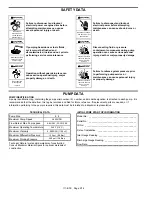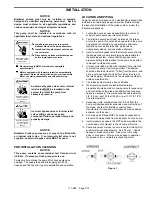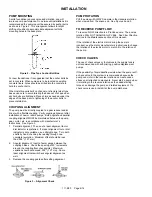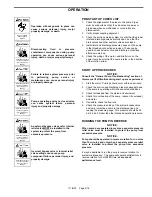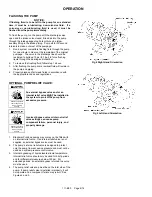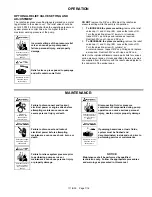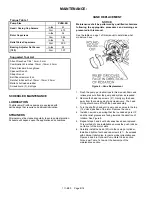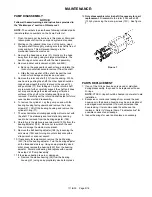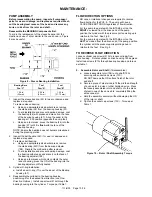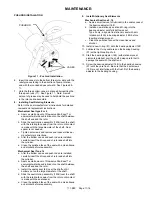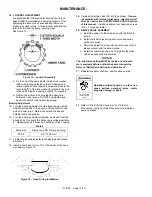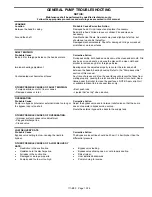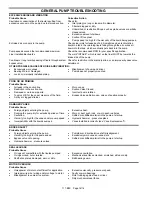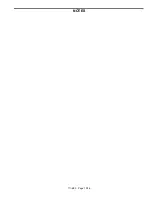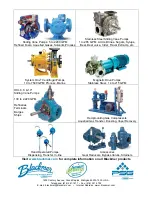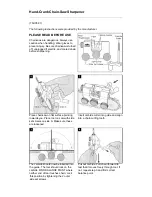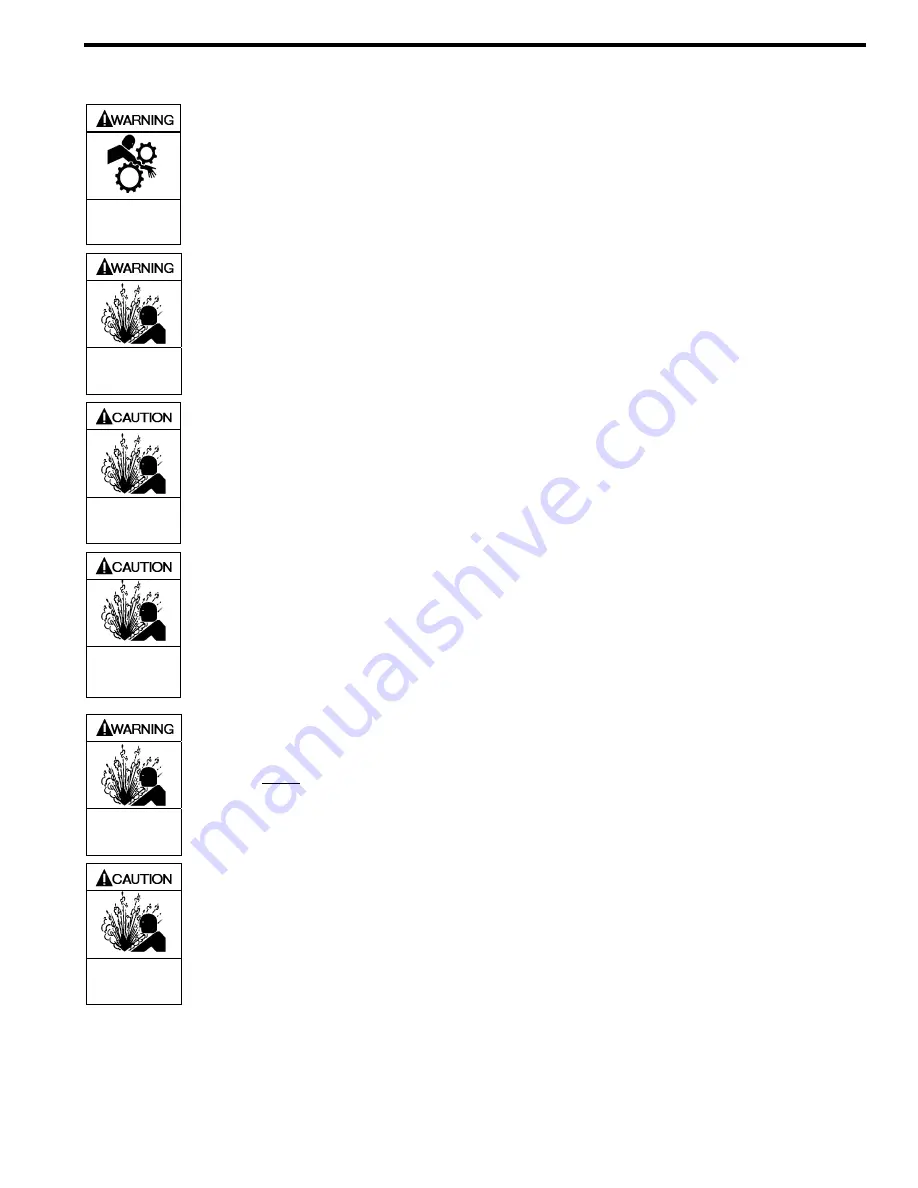
111-B00 Page 5/16
OPERATION
Operation without guards in place can
cause serious personal injury, major
property damage, or death.
Do not operate
without guard
in place
Disconnecting fluid or pressure
containment components during pump
operation can cause serious personal
injury, death or major property damage
Hazardous pressure
can cause personal
injury or property
damage
Failure to relieve system pressure prior
to performing pump service or
maintenance can cause personal injury
or property damage.
Hazardous pressure
can cause personal
injury or property
damage
Pumps operating against a closed valve
can cause system failure, personal
injury and property damage
Hazardous pressure
can cause personal
injury or property
damage
An external bypass valve and/or internal
relief valve MUST be installed in the
system to protect the pump from
excessive pressure.
Hazardous pressure
can cause personal
injury or property
damage
Incorrect bypass valve or internal relief
valve settings can cause pump
component failure, personal injury, and
property damage.
Hazardous pressure
can cause personal
injury or property
damage
PRE-START UP CHECK LIST
1. Check the alignment of the pipes to the pump. Pipes
must be supported so that they do not spring away or
drop down when pump flanges or union joints are
disconnected.
2. Verify proper coupling alignment.
3. Check the entire pumping system to verify that the proper
inlet and discharge valves are fully open, and that the
drain valves and other auxiliary valves are closed.
4. Install inlet and discharge pressure gauges on the pump
in the threaded connections provided. These can be
used to check actual suction and discharge conditions
after pump start-up.
5. Check the wiring of the motor, and briefly turn on the
power to make sure that the pump rotates in the direction
of the rotation arrow.
START UP PROCEDURES
NOTICE:
Consult the "General Pump Troubleshooting" section of
this manual if difficulties during start up are experienced.
1. Start the motor. Priming should occur within one minute.
2. Check the suction and discharge pressure gauges to see
if the pump is operating within the expected conditions.
3. Check for leakage from the piping and equipment.
4. Check for overheating of the pump, reducer (if equipped),
and motor.
5. If possible, check the flow rate.
6. Check the pressure setting of the system bypass valve
by slowly restricting a valve in the discharge line and
reading the pressure gauge. This pressure should be 20
psi (1.4 bar) higher than the intended operating pressure.
RUNNING THE PUMP IN REVERSE
NOTICE:
When pumps are operated in reverse a separate pressure
relief valve must be installed to protect the pump from
excessive pressure.
NOTICE:
Pump should be operated in reverse rotation for no more
than 10 minutes and only when a separate pressure relief
valve is installed to protect the pump from excessive
pressure.
It may be desirable to run the pump in reverse rotation for
system maintenance. The pump will operate satisfactorily in
reverse rotation for a LIMITED time,
at a reduced
performance level.
Summary of Contents for ProVane PV6B
Page 15: ...111 B00 Page 15 16 NOTES...


